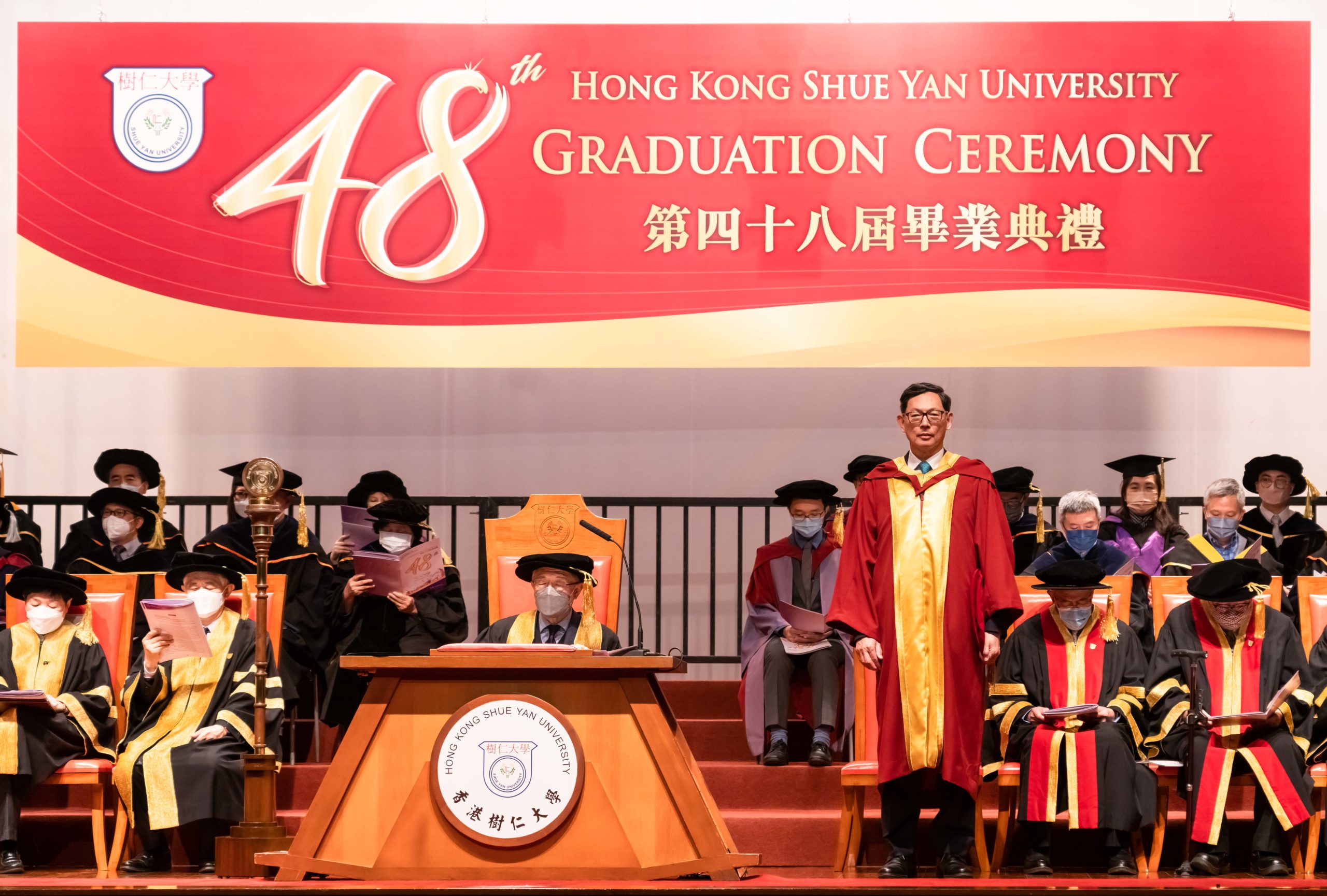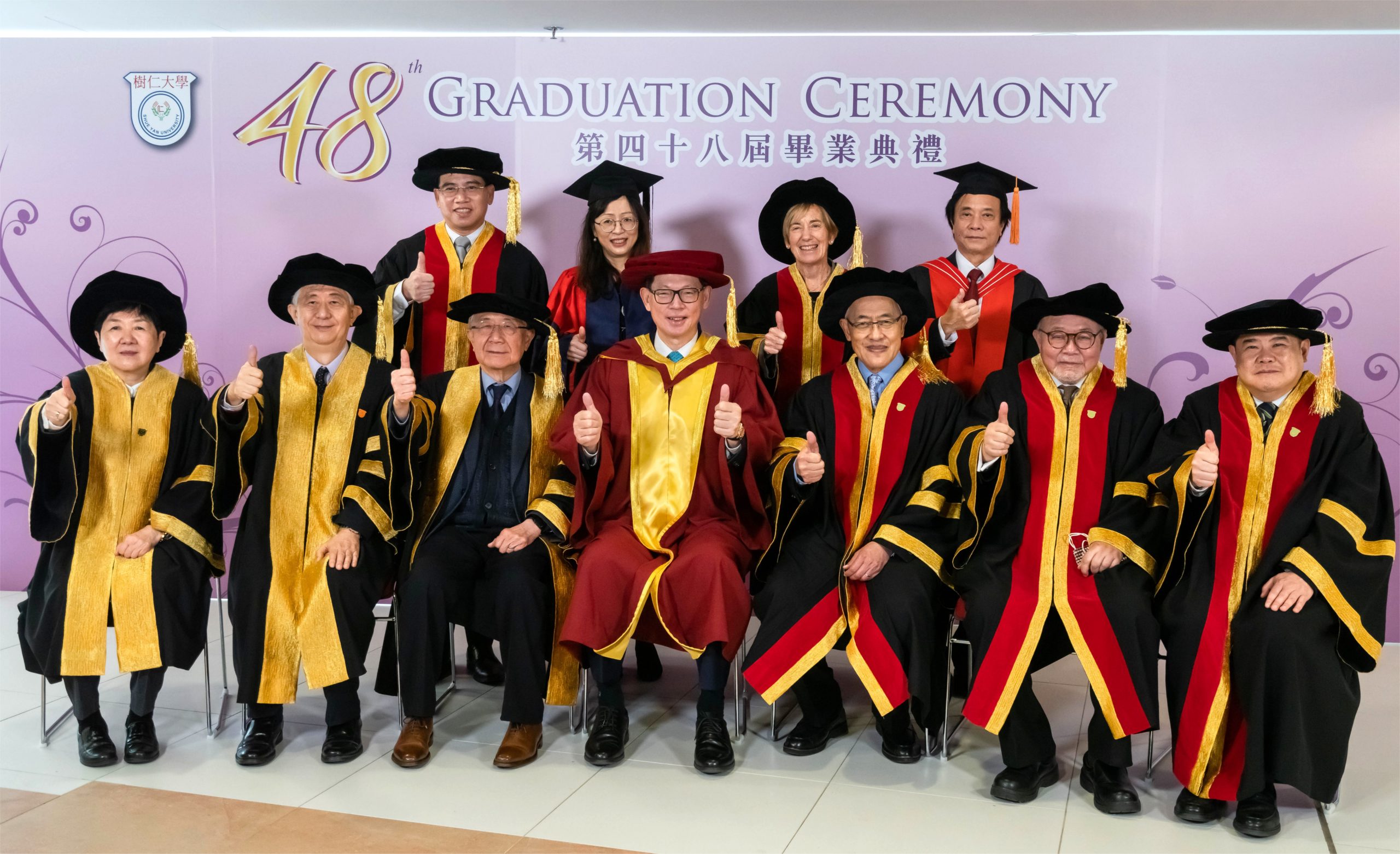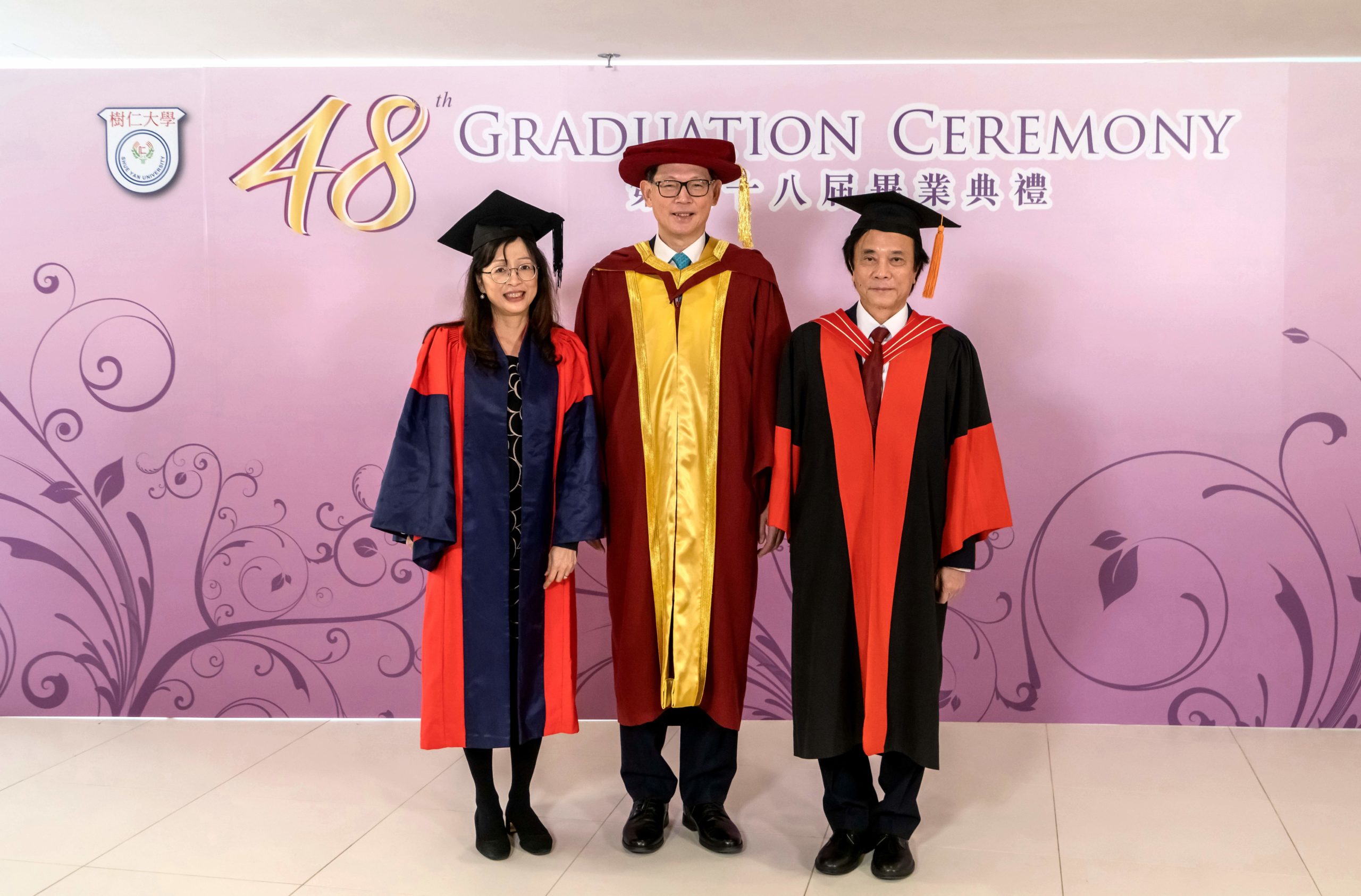An honorary degree was conferred on the former Chief Executive of Hong Kong Monetary Authority (HKMA) Dr. CHAN Tak-lam Norman in the 48th graduation ceremony at Hong Kong Shue Yan University (HKSYU).
The honorary degree conferment ceremony was held in Lady Lily Shaw Hall on 5th December 2022. Professor Catherine SUN Tien-lun, Senior Vice President of HKSYU, presented the candidate and Professor HU Yao-su, Provost of HKSYU, conferred the degree.

Professor CHEUNG Yuet-wah, Head of the Department of Sociology and Distinguished Professor, read the citation which attributed the success of Dr. CHAN to his education and vision. Prof. CHEUNG said sociology aims to widen students’ horizons to look beyond common sense and understand social reality. It provides multiple sociological perspectives and methodologies for the analysis of social phenomena. Dr. CHAN, who chose sociology as his major in his undergraduate study, was an excellent example of how sociology and liberal arts education can prepare one for a distinguished career in the highly specialised fields of monetary management, reserve management and banking super vision. Prof. CHEUNG said Dr. CHAN’s education path mirrors Shue Yan University’s present strategic goal of reinventing liberal arts education in the digital era.
The citation reads Dr. CHAN, Chairman of the Board of Trustees of Chung Chi College of the Chinese University of Hong Kong, his alma mater, suggested 12 Chinese characters to represent the essence of the ideal personality that university education should seek to promote, which are: “Academic and Athletic Excellence (文武雙全)”, “Ethics and Intellect (德才兼備)”, and “Spiritual Enhancement(靈性修為)”. The framework for university non-formal education resonates with Shue Yan’s mission “to enable students to cultivate a whole, balanced personality including moral character and to realize their full potential as individuals, as scholars and as good citizens”. The inculcation of these qualities in young people is sorely needed in Hong Kong today, Prof. CHEUNG said.


In his acceptance speech, Dr. CHAN said he is greatly honoured to receive the degree. He added it is no easy task to put into practice the ideals and words of wisdom encapsulated in the 12 Chinese characters. In addition to investing more resources and improving the accompanying hardware and software, there is also a need to slowly change the mindset of students, parents, teaching staff and members of society. Rather than look at it merely as a training center churning out degrees and professional qualifications, a university as an institute of higher education should elevate itself into a platform for nurturing “intellectuals”, who have strong moral foundations and care about both society and country. If this can be successfully achieved, Hong Kong will have a much bright er future, he said.


Dr. CHAN offered his own recommendations to the education of Hong Kong. Regarding the medium of instruction, he suggested that while classes may be conducted in English or Chinese, key vocabulary, geographical terms and personal names in Hong Kong’s textbooks should be rendered in a bilingual format. Teachers should also use the bilingual method of teaching in the classroom. He insisted Hong Kong has been, and continues to be, an East-West meeting point for trade and cultural exchanges. It is of paramount importance that Hong Kong people should have a good command of both Chinese and English. This is a matter concerning not only the city’s competitiveness, but also, like a cornerstone, underpinning the long-term stability and sustainability of “One Country, Two Systems”, Dr. CHAN said.
Dr. CHAN added that while modern societies are extremely complex and diverse, different teaching modes can fulfill different needs in society. However, he suggested that the global rankings of universities have placed an overtly heavy focus on research output rather than teaching quality and the cultivation of good character traits. In order not to deprive students of the benefits of a quality education and positive learning experience, universities need to find a balance and avoid placing too much emphasis on research and publications alone in their pursuit of higher international rankings.
Source: Nov and Dec Issue 2022
